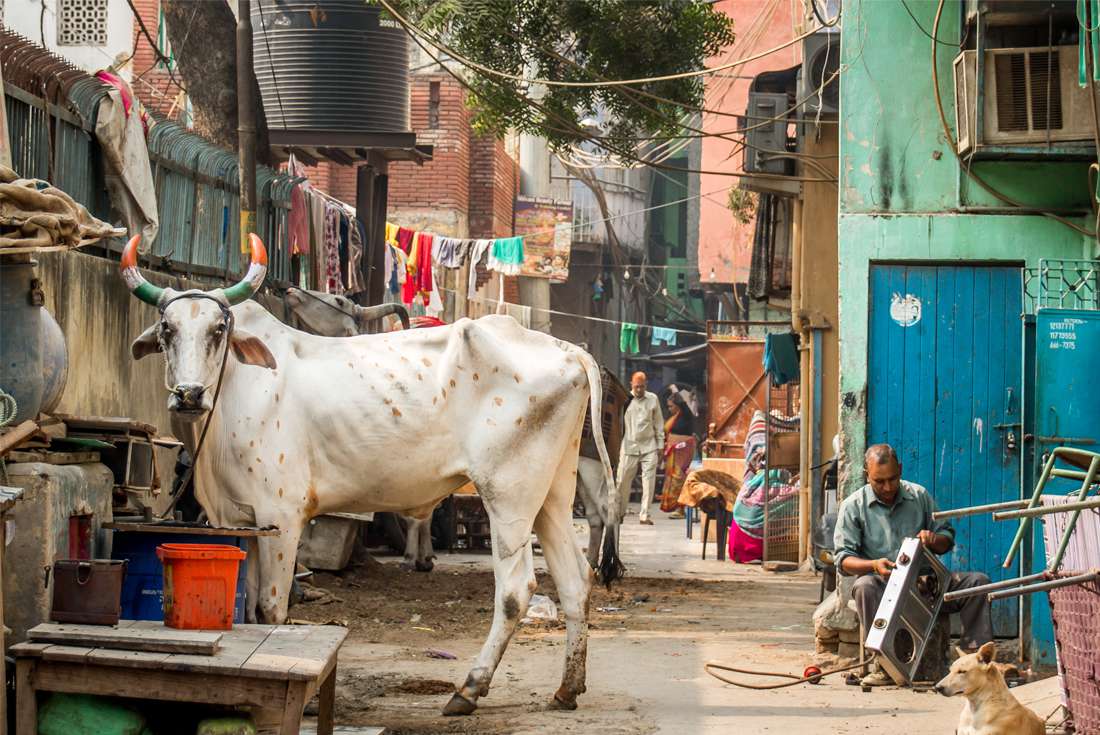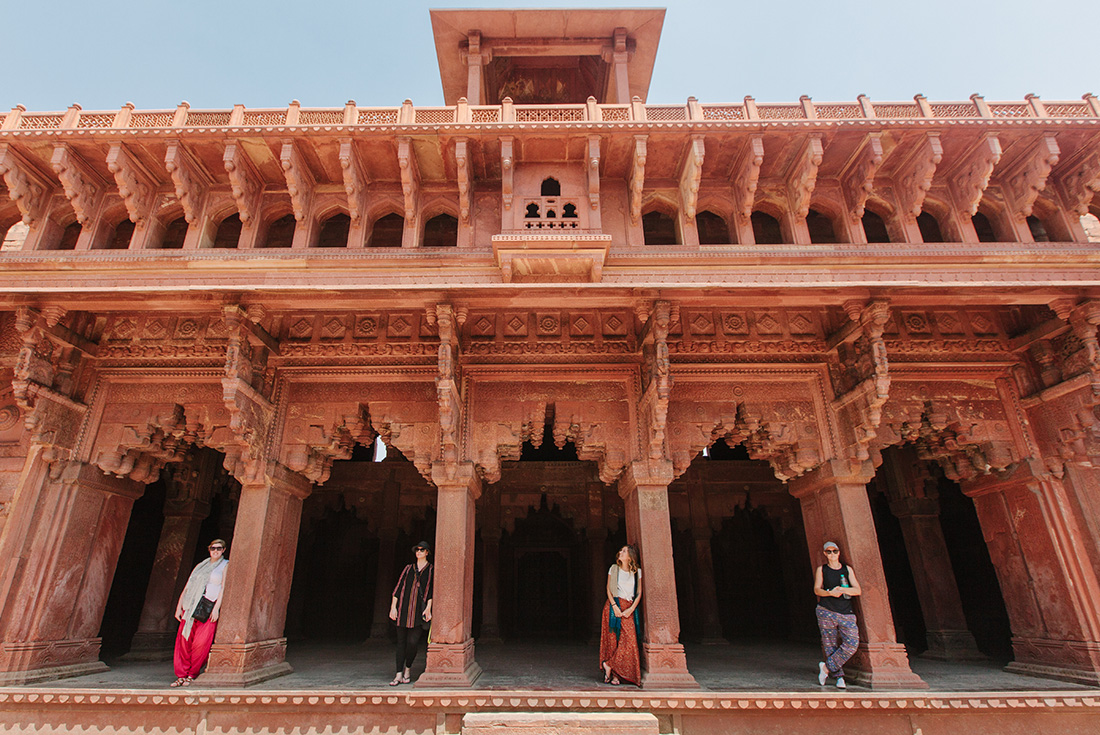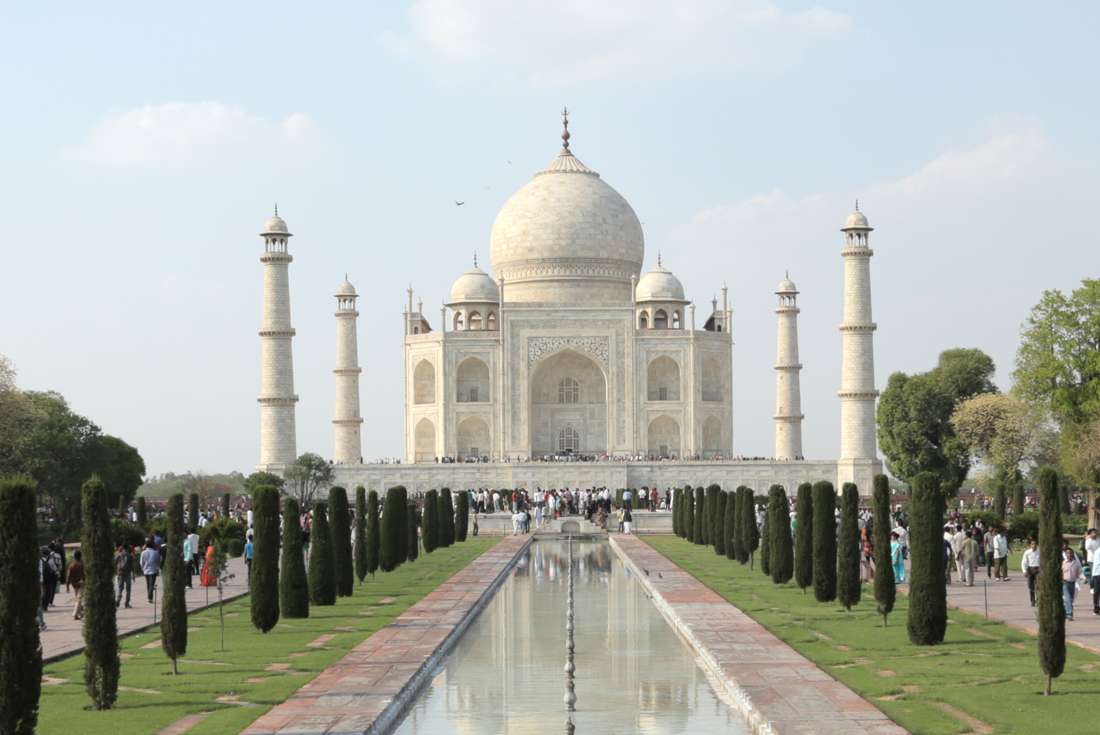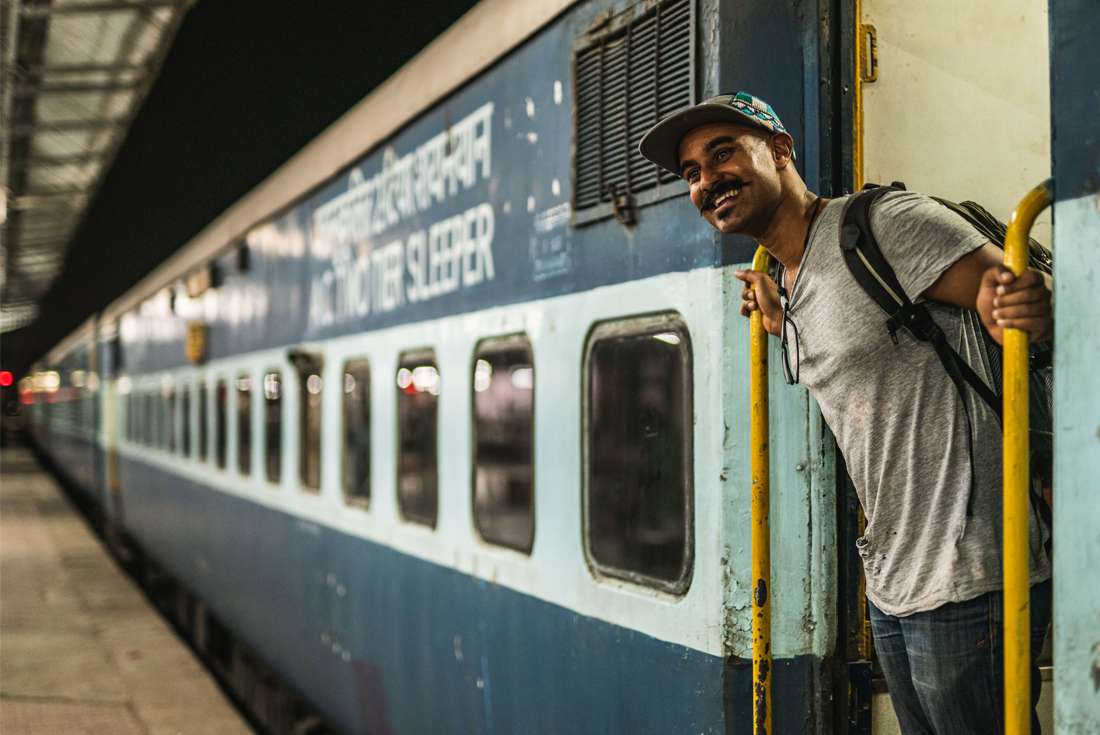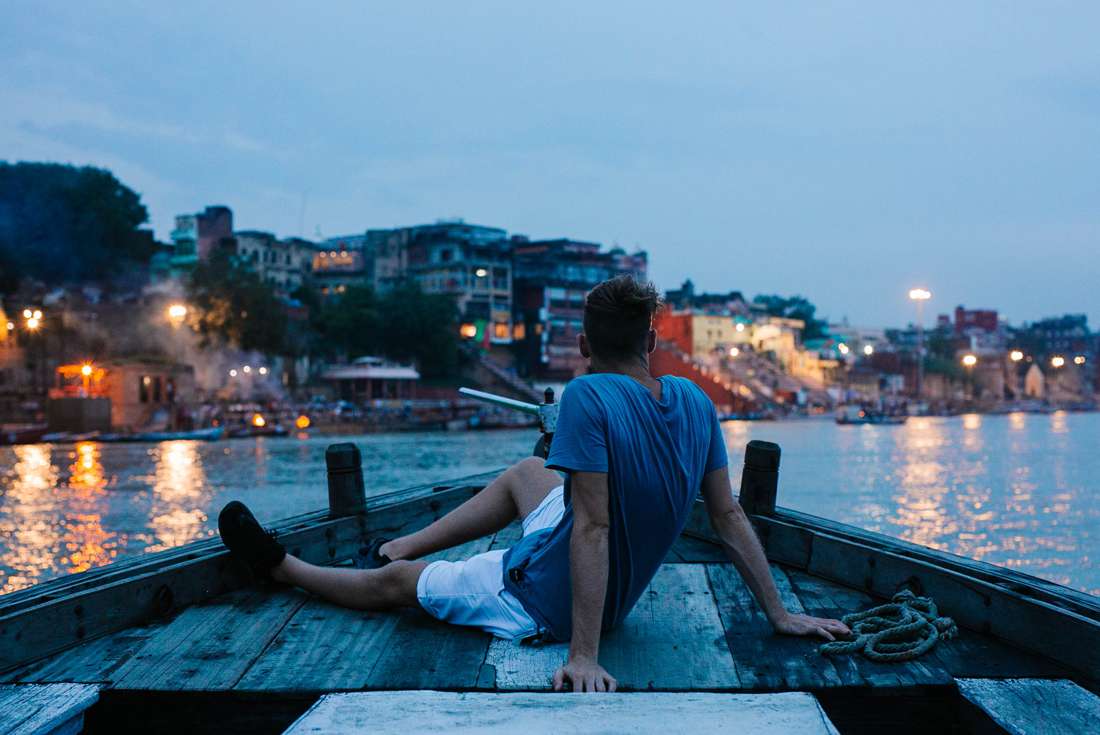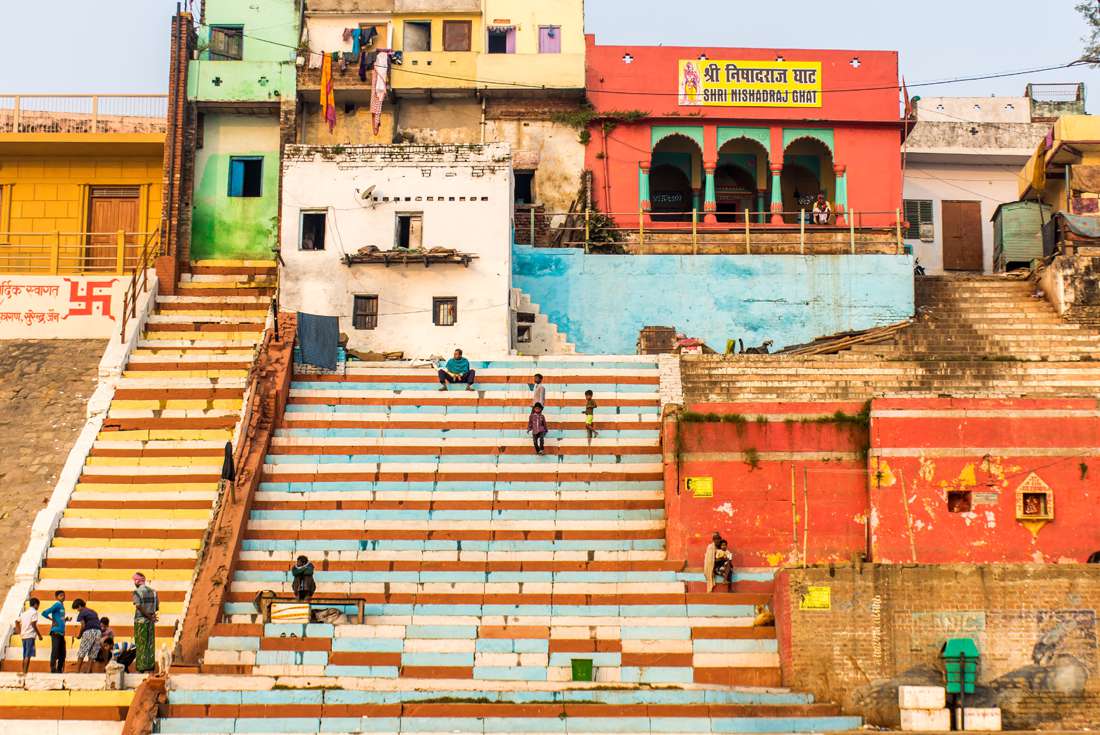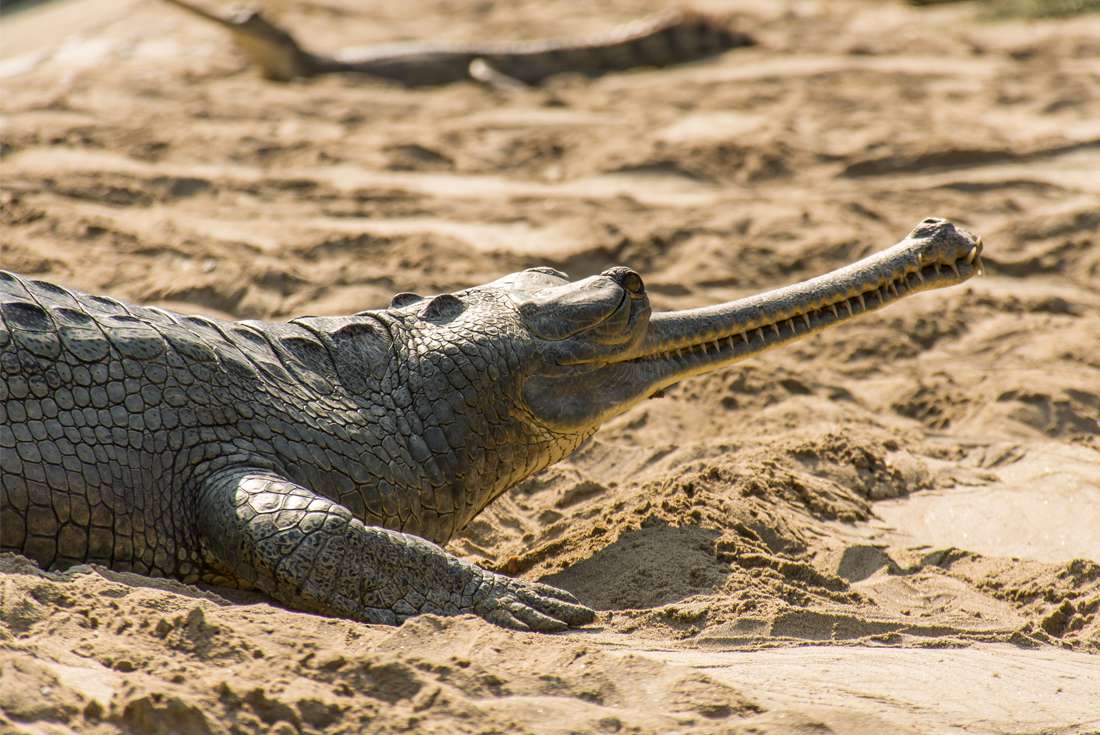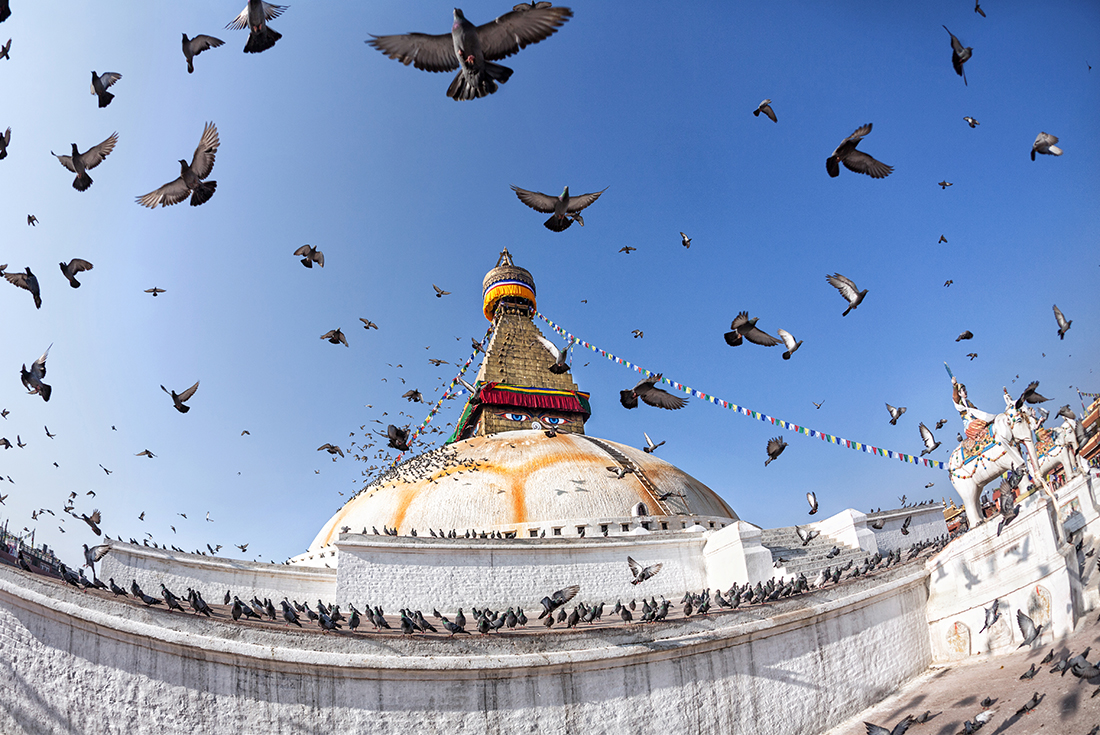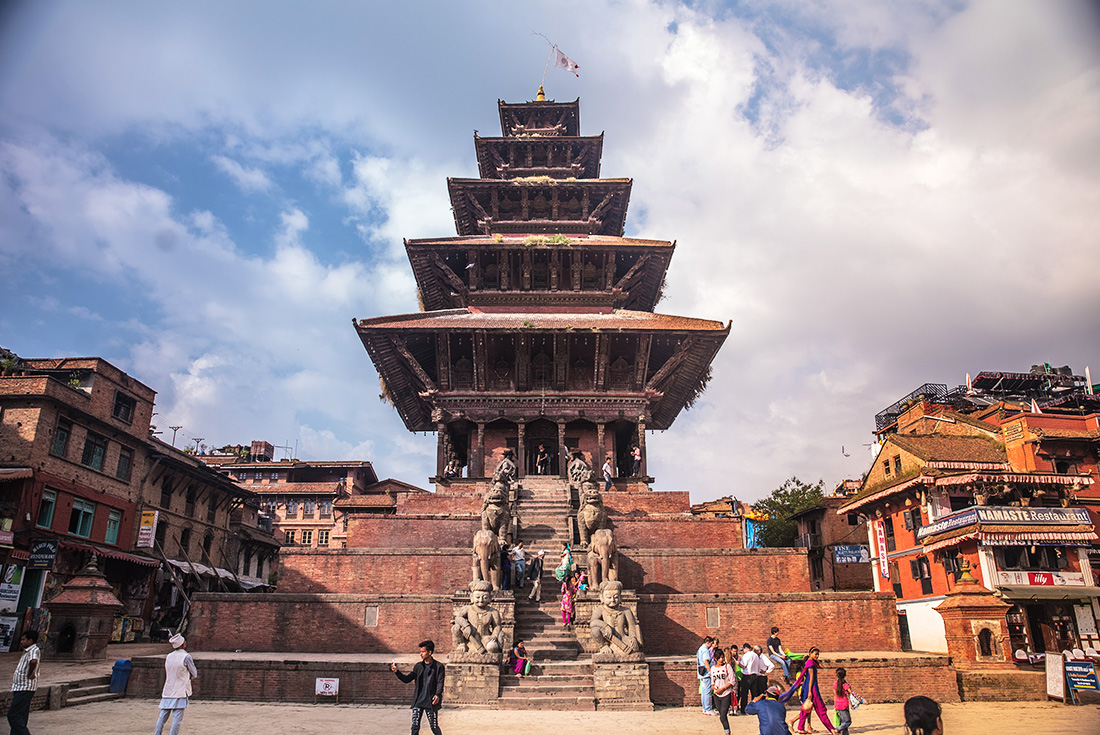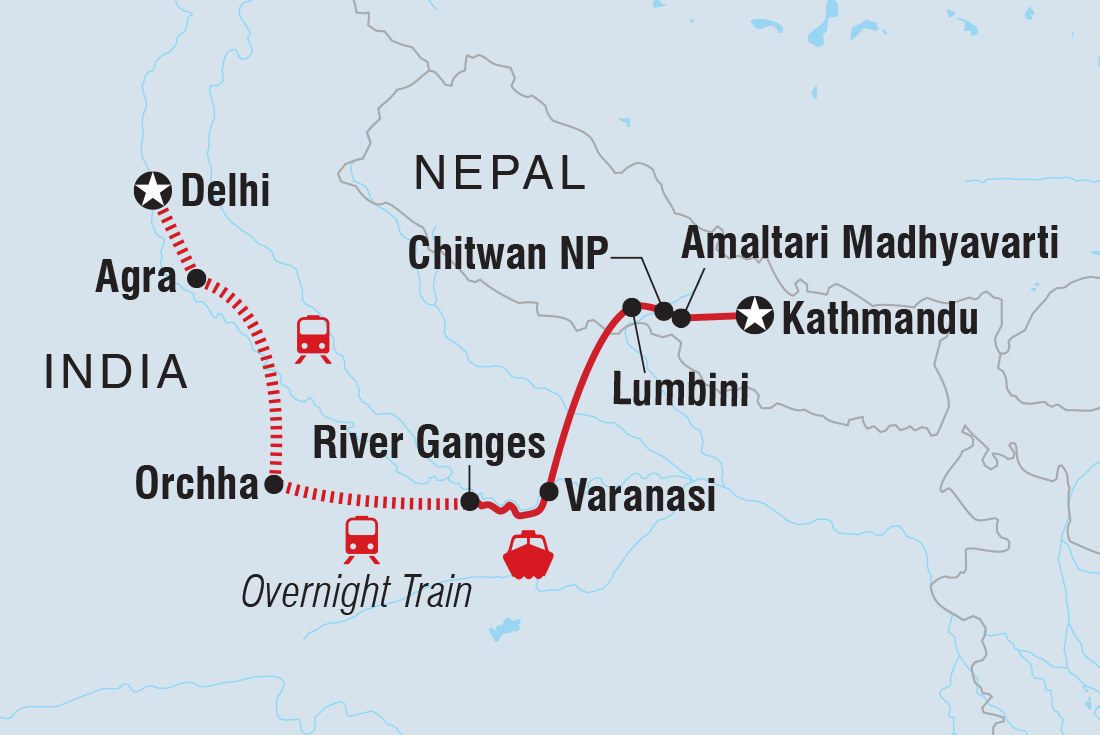Account Number : 63245268
Sort Code : 204281
Delhi to Kathmandu
Delhi to Kathmandu
Travel from India to Nepal on an insightful overland trip from Delhi to Kathmandu. From reminders of the Mughal dynasty in northern India to the snow-capped Himalayas of Nepal, this trip will truly inspire. Witness the colour and contrast between the bazaars of Delhi, the jungle in Orchha, and the sacred Ganges. Be awed by the Taj Mahal and see the sunrise over the holy city of Varanasi. Come face-to-face with pilgrims, villagers, holy men, and generations of shopkeepers. For those wanting to travel by land between these two very different neighbours, this is the perfect journey.
Tour At a Glance
- Bigger and more beautiful than any photo can capture, the Taj Mahal is a triumph of Mughal architecture that promises to inspire even the most seasoned travellers.
- Learn to whip up some central Indian staples during a cooking demonstration at home with friends in Orchha; the perfect opportunity to experience an authentic slice of Indian family life.
- See pilgrims praying and bathing along the ghats of the sacred Ganges River during an unforgettable sunrise cruise in Varanasi – one of India's holiest cities.
- Stay in a lodge and wake to the calls of the jungle in Chitwan National Park, then embark on a safari in search of rhino, deer, monkeys, and a wide array of birdlife.
- Spend a memorable night at Amaltari Madhyavarti Homestay – staying here provides sustainable incomes and encourages local communities to conserve the wilderness and wildlife around them.
- Tour code: HHSK
- Group Adventure
Dates & Prices
Is this trip right for you.
- This trip involves travel on public transport, covering long distances and consequently some long days of travel. Long-distance and overnight trains can often be delayed and occasionally cancelled due to heavy fog between December and February. Some patience will go a long way towards your enjoyment here. Sit back, relax, watch the scenery go by – a book or podcast doesn’t go astray.
- We do our best to estimate travel times, but these can often change. That's just how it is in these parts and as a result, there's not as much free or independent time as on some other trips.
- Nepal and north India can get surprisingly cold in winter, please pack accordingly so you aren't caught out! Speaking of the weather, it also has the potential to be very hot, depending on the season. Please make sure you check seasonal weather guides and pick a travel time that suits your comfort level.
Accommodation
- Hotel (7 nights)
- Lodge/Guesthouse (3 nights)
- Heritage Property (2 nights)
- Overnight sleeper train (1 night)
- Camping (with basic facilities) (1 night)
Joining point instructions
Delhi's Indira Gandhi's International Airport is approximately 25km from Karol Bagh. One of the biggest airports in the world, it can be quite chaotic and can take some time to process your visa and collect your luggage.
Intrepid offer a pre-arranged transfer service option. Enquire with your agent and advise your flight arrival details at least 14 days prior to your trip departure. If you have purchased an arrival transfer you will be met in the arrivals hall after clearing customs, your representative with sign board will be standing near the Costa Coffee next to gate no 5. Please ask them to confirm your name.
Please do not exit the gates, Costa coffee is just before the exit gate no.5.
If you have any problems and cannot locate our representative, or if your flight is delayed please call the following 24 hour number:
If you do not have a mobile phone, there are public phones next to Costa Coffee. Calls cost 1 rupee per minute
Failing the above please take a taxi to the hotel (using the instructions below) and advise your group leader. When you walk out of the exit door, you will easily be able to spot popular metered taxi counters such as Meru Cabs/Mega Cabs or Easy Cabs, show them your drop location and pay them as per the meter once you get to your hotel.
Taxi's from the airport to our starting point hotel take approx 1 hour and costs between INR 500 - 600 (prepaid traffic police booths).
IMPORTANT: Please avoid taxi touts who tell you that they have a metered taxi parked outside the airport. Previous passengers have complained that they have been charged hefty amount for the transfers.
The Delhi metro is another option from the airport. Trains depart between approx 5am and 11:30pm, the trip takes approx. 45 mins and costs around INR100. Please refer to the metro map for lines, changes and directions to Karol Bagh where most of our hotels are located.
Check in time at hotel is 12 midday.
Finish point description
The Hotel Moonlight is situated on the edge of Thamel near the bustling downtown area of Kathmandu. the hotel features a quiet courtyard garden and a rooftop terrace with great views over Kathmandu. 46 rooms with LCD TV, individually controlled A/C, room service, telephone and gym. There is free wifi throughout the hotel. The hotel has a restaurant serving Nepali and international cuisine as well as a bar.
Finish point instructions
- Checkout time is 12 midday. Taxis can easily be hired from the street in front of the hotel.
- We can offer a pre-arranged private transfer service. Inform your agent at the time of booking if you are interested.
Safety
- Most national governments provide regularly updated foreign travel advice on safety issues involved with international travel. We recommend that you check your government's advice for their latest travel information before departure and ensure that your travel insurance covers you for all destinations and activities on your trip. Please refer to our website's safety page for links to major travel advisories and updates on safety issues affecting our trips here: We strongly recommend the use of a neck wallet or money belt while travelling, for the safe-keeping of your passport, flight tickets, cash and other valuable items. Leave your jewellery at home - you won't need it while travelling. Many of our hotels have safety deposit boxes, which is the most secure way of storing your valuables. A lock is recommended for securing your luggage. Your group leader or local representative will accompany you on all included activities, however, during your trip you'll have some free time to pursue your own interests or relax and take it easy. While your group leader or local representative will assist you with the available options in a given location, please note that any optional activities you undertake are not part of your Intrepid itinerary, and Intrepid makes no representations about the safety of the activity or the standard of the operators running them. Please use your own good judgement when selecting an activity in your free time. Please also note that your group leader or local representative has the authority to amend or cancel any part of the trip itinerary if it's deemed necessary due to safety concerns. Intrepid's operational safety policies can be viewed on our website at the link below. We recommend that you take a moment to read through this information before travelling, and would appreciate any feedback on how safety is being managed on our trips.
- 'S SAFETY: Women should exercise caution when travelling in India. Reported cases of sexual assault against women are increasing; recent sexual attacks against female visitors in tourist areas and cities show that foreign women are also at risk. While the risk of an incident occurring on your trip is very low, below are some things you can do for your safety and peace of mind when travelling: - Respect local dress codes and customs, perhaps dressing more conservatively than you do at home - Avoid isolated areas, including beaches, unlit city streets and village lanes when alone at any time of day - Avoid travelling alone on public transport, or in taxis or auto-rickshaws, especially at night - If you have to use a taxi get them from hotel taxi ranks and use pre-paid taxis at airports. Try to avoid hailing taxis on the street. Some cities (including Delhi and Chennai) have special taxi services for women with women drivers - If you’re being collected at the airport by a driver make sure they have properly identified themselves before you set off. -When leaving your compartment on overnight trains (ie. going to the bathroom), ask a male travel companion to accompany you where possible For further information and advice, visit: www.gov.uk/government/policies/supporting-british-nationals-overseas/supporting-pages/advice-for-women-travellers www.smartraveller.gov.au/tips/women.html PERSONAL BELONGINGS: We strongly recommend the use of a neck wallet or money belt while travelling, for the safe-keeping of your passport, air tickets, cash and other valuable items. Leave your valuable jewellery at home - you won't need it while travelling. Many of our hotels have safety deposit boxes, which is the most secure way of storing your valuables. A lock is recommended for securing your luggage. FREE TIME: Your group leader or local representative will accompany you on all included activities, however, during your trip you'll have some free time to pursue your own interests, relax and take it easy or explore at your leisure. Please use your own good judgement when selecting an activity in your free time. Please also note that your group group leader or local representative has the authority to amend or cancel any part of the trip itinerary if it's deemed necessary due to safety concerns. FESTIVALS: Travelling in India and Nepal during Holi can at times be unsafe - drinking and drug use is more widespread during this holiday. Your group leader or local representative will advise your group on what places to avoid on this day. It may be necessary to alter your itinerary for the day. Diwali (a lunar festival generally held from mid-October to mid-November every year) is celebrated by local people letting off fireworks in the street. It can be very noisy for several days with extra pollution caused by fireworks. As there are no restrictions on buying fireworks in India there are often injuries caused by people exploding them inappropriately. During this festival, your group leader or local representative may be required to alter your itinerary to avoid large crowds gathering and using fireworks. PERSONAL SAFETY: While travelling there is always the risk of pick-pocketing and petty theft, particularly in the more touristy cities. We recommend that you exercise caution when walking alone at night and encourage you to walk together and only on main, well-lit thoroughfares. Be particularly vigilant on public transport. Simple measures like carrying your day pack on your front, not hanging your bag over the back of your chair and wearing a money belt will reduce any chance that your valuables should go missing. SCAMS: Scams involving ATM and credit cards, train tickets, taxis, temple donations and tourist guides operate throughout India. If you are the victim of a scam, report it immediately to the nearest police station. Even though they may not be able to get your money or goods back, they can issue you with an official loss report for insurance purposes.
- STRIKES: Demonstrations and protests are common in Nepal, with strikes regularly occurring that may result in curfews or roadblocks being enforced at short notice. At these times, businesses may close and vehicles may not be allowed on the roads. You should avoid any demonstrations or political gatherings and follow local advice, including that of your group leader or local representative in the event of any disruptions. PETTY THEFT & CRIME: Pickpocketing and other petty theft is common, especially in places where tourists or foreigners frequent. Take care when walking around at night. Avoid walking on your own and don’t carry large sums of cash. Keep valuables in a hotel safe if possible. Bars and restaurants now close at midnight as part of a government crackdown on illegal activities. Foreigners remaining in bars and clubs after hours have been detained by the police. Police have increased their presence in Thamel and Durbar Marg, popular tourist districts in Kathmandu, in an effort to reduce crime in these areas. You should seek out police if you have been robbed or affected by any crime. ALTITUDE: Altitude sickness is a risk, including on the Annapurna, Langtang and Everest Base Camp treks. Please make sure you familiarise yourself with signs and symptoms before you depart and monitor your own health during your trek. INSURANCE: Make sure your insurance covers you for your intended activities, including travel and trekking above 3000m if this is included on your itinerary, mountain rescue services and helicopter evacuation costs. FESTIVALS: Travelling in Nepal during Holi Festival (23-25 March 2024), can at times be dangerous due to revellers consuming intoxicating substances. The day is often associated with physical violence and danger. Your group leader or local representative will advise you and your group on what places to avoid on this day and it may even be necessary for us to alter your itinerary for the day to avoid putting you or your group leader or local representative in a high-risk situation. Travelling during the Hindu festival Diwali (12 Nov 2023, 1 Nov 2024) can also be dangerous. During this time there are many displays of fireworks in the streets. It can be very noisy for several days and there is also a lot of pollution caused by the fireworks. As there are no restrictions on buying fireworks there are often injuries caused by people exploding them inappropriately. During this festival, your group leader or local representative may be required to alter your itinerary to avoid any dangerous areas to avoid putting the group at risk. INTERNAL FLIGHTS: There have been a number of air accidents in Nepal. We only use airlines that have passed strict safety audits for included internal flights in Nepal, including Buddha Air, Summit Air.
Medical and health information
- All travellers need to be in good physical health in order to participate fully on this trip. For the safety and wellbeing of yourself and others, if you are unwell prior to travelling, please stay at home and contact us to make alternative arrangements.
- When selecting your trip please make sure you have read through the itinerary carefully and assess your ability to manage and enjoy our style of travel. Please note that if in the assessment of our group leader or local representative a traveller is unable to complete the itinerary without undue risk to themselves and/or the rest of the group, we reserve the right to exclude them from all or part of a trip without refund.
- You should consult your doctor for up-to-date medical travel information or for any necessary vaccinations before departure. We recommend that you carry a first aid kit as well as any personal medical requirements in their original packaging as they may not easily be obtained while travelling. If you are carrying medication, ensure you check your government's foreign travel advice for any local restrictions or requirements.
- Malaria is a risk in many parts of India, including major cities. Cases of dengue fever are reported, especially in the period after the monsoon. Other mosquito-borne diseases (including Japanese encephalitis, chikungunya fever, and filariasis) also occur. Take preventative measures such as wearing long clothing, using repellent, and being indoors particularly around dusk and dawn. Consult a medical professional regarding prophylaxis against malaria. For more information, see the World Health Organisation's fact sheets
- During winter months (October-February), air pollution levels in parts of India can spike to hazardous levels. Severe pollution can increase the risk of respiratory problems. Those with pre-existing medical conditions, particularly heart and lung conditions, may be especially affected. Your group leader or local representative can assist you to obtain a face mask if required. All customers are encouraged to pack (reusable) face masks as a precaution.
- Water-borne, food-borne, parasitic and other infectious diseases (including meningitis, cholera, typhoid, hepatitis, tuberculosis, diphtheria and rabies) are common in India. Tap water is not safe to drink. Home-made or unlabelled alcohol can be poisonous. Seek medical attention if you suspect food poisoning, if you have a fever or suffer from diarrhea.
- India is classified as an ongoing transmission zone for Zika, with confirmed cases in Tamil Nadu and Jaipur. Basic precautions for protection from mosquito bites should be taken by people traveling to Zika transmission areas, especially pregnant women.
- Cases of influenza A(H1N1) are widespread in India during winter with a number of recent cases in Rajasthan. Discuss influenza vaccination requirements with your doctor or a travel health professional before departing and maintain good hygiene practices by covering your mouth and nose with a tissue when coughing, and washing your hands regularly. For more information, see the World Health Organisation's fact sheets (seasonal)
GENERAL HEALTH
MOSQUITO-BORNE ILLNESSES
AIR POLLUTION
OTHER INFECTIOUS DISEASES
ZIKA VIRUS
INFLUENZA
Food and dietary requirements
- While travelling with us you'll experience the vast array of wonderful food available in the world. Your group leader or local representative will be able to suggest restaurants to try during your trip. To give you the maximum flexibility in deciding where, what and with whom to eat, generally not all meals are included in the trip price. This also gives you more budgeting flexibility. As a rule our groups tend to eat together to enable you to taste a larger variety of dishes and enjoy each other's company. If you have dietary requirements and/or food allergies, please let your booking agent know prior to departure.
- Food is a way of life in India. You can snack for a bargain or dine in the finest Indian restaurants. Generally, you can eat very cheaply in India. There is a huge choice of restaurants and street stalls serving traditional and local Indian food. In bigger restaurants in areas frequented by more tourists, there is a choice between Indian, Chinese and Western-style food. Here are some ideas of what to try
- Please note that service in restaurants (especially with a group) can be quite slow so patience is a must.
- India caters very well towards vegetarians and vegans with almost all restaurants having a veg and pure veg section of the menu. If in doubt please check with your group leader or local representative. See our guide to eating vegan in India here
- Your group leader or local representative will be able to direct you towards restaurants that are known to have better hygiene, especially in tourist areas where they are travelling with our groups regularly. For some more advice on avoiding "Delhi belly", see our article here
- In Kathmandu and Pokhara there are plenty of restaurants and cafes for all tastes and budgets. For a glimpse at what traditional Nepali cuisine entails, check out our guide here
- Nepal caters very well towards vegetarians and vegans with almost all restaurants having a veg section of the menu. Your group leader or local representative will be able to direct you towards restaurants that are known to have better hygiene, especially in tourist areas where they are travelling with our groups regularly.
FOOD IN INDIA
FOOD IN NEPAL
Important Notes
- What you need to bring will vary according to when you are travelling. Generally speaking, we recommend you pack as lightly as possible and make sure that you are able to carry and lift your own luggage and walk with it for short distances including up and down stairs and in busy train stations. Our travellers usually find the smaller their luggage is, the more they enjoy the trip not having to worry about carrying heavy bags! Aim to keep your main luggage under 15kg.
- Small, wheeled suitcases that can also easily be picked up and carried are the best for travel in this part of the world, although if you prefer, a backpack is also fine. If you are taking overnight trains, or primarily using public transport then the smaller your luggage the easier it will be to store under or above bunks.
- A day pack for carrying essentials when exploring destinations as well as for short overnight stays will be useful. On overnight trains packing this with the essentials you need to access during the trip will also be very useful.
- Below are some ideas and helpful tips on what you specifically need for this trip.
- Lightweight clothing. A mixture of lightweight clothing and warm layers. Clothes should be easy to wash and dry. Maybe bring a change in smart clothes for dinner in bigger cities. Clothing that covers arms and pants/skirts that go past the knee for entry into local temples.
- Closed-in shoes (to protect from cuts/scratches/insect bites on city and countryside walks)
- Sun protection hat, sunscreen, sunglasses
- Parts of India can get very cold (ie. below zero!) during winter (Dec to Feb) and northern regions of India are typically cool in the evenings throughout the year. Many hotels in India do not have central heating. We recommend checking local weather advisory websites before departing to get a better understanding of what to expect and how best to pack. Bringing extra layers and a beanie could improve your overall experience.
- Personal medical kit, we recommend you carry items such as mild pain killers, electrolytes, Band-Aids and insect repellent.
- Water bottle. At least 1.5litre capacity. The sale of bottled water contributes to an enormous environmental problem around the world. A large proportion end up in limited landfill or discarded in waterways and natural environments.
- Camera with spare batteries. Our trips have access to power to recharge batteries for phones and cameras most days but we recommend you take a spare battery for your camera.
- A small chain and padlock for overnight trains is handy to keep your luggage safe and secure.
- Sleeping bag. Useful for camping, overnight trains and poorly heated hotels, during the winter months of Dec Feb
- Sleep sheet
- Earplugs & eye mask
- Swimming costume
- Binoculars for spotting wildlife
- Reusable shopping bag for buying supplies for long journeys
- Slippers or flip flops
- Torch/flashlight
- Travel wipes
- Small towel
- Head scarf for women (for when entering temples or mosques)
- Check weather in destinations you are travelling to online a few days before you go to make sure you pack appropriate clothing
- Laundry facilities may not be available in all destinations, so make sure you have a few cycles of clothes to tide you over until your next chance to wash
- Please try to avoid bringing unnecessary valuables, and use your hotel safe. It’s also a good idea to purchase a money belt or pouch that is easily hidden. We strongly recommend that you photocopy or screen shot scan all important documents e.g. air tickets, passport, vaccination certificates etc. and keep the copies.
- If you need some further tips for packing, you can always check out our ultimate packing list, or read this advice here
LUGGAGE
DAY PACK
ESSENTIALS
RECOMMENDED
OPTIONAL
OTHER USEFUL THINGS TO TAKE
OTHER THINGS TO CONSIDER
VALUABLES
MORE!
Passport and visas
PASSPORT
You’ll need a valid passport to travel internationally and most countries require your passport to have a minimum of 6 months validity, so remember to check the expiry date.
We need your passport information to get everything ready for your trip so it’s important that the information on your booking matches your passport exactly. Please take care to provide the correct details. We recommend carrying a copy of the photo page of your passport while travelling and leaving a copy at home with family or friends.
VISAS & ENTRY REQUIREMENTS
Many countries require a visa and obtaining the correct visa for your trip and any countries you may transit through is your responsibility. We recommend you check your visa requirements as soon as you have booked your trip. This will ensure you have time to prepare your documents and for your visa application to be processed. You can check the entry requirements for your nationality on your government's foreign travel advisories, consular websites or on our page here: www.intrepidtravel.com/visa-entry-requirements
ADDRESS FOR INDIA VISA APPLICATIONS
If you require an address for your visa application please use:
Intrepid India
25/3 East Patel Nagar
Delhi 110008
Phone: +91 11 4500 6400
Day 9 border crossing name from India to Nepal: Belahiya (Bhairahawa) on the Nepal side.
Travel insurance
Travel insurance is compulsory on all our trips for those travelling internationally. We require that at a minimum you are covered for medical expenses including emergency repatriation. If you are travelling within your home country or region please confirm before travel that you are entitled to access the public medical system easily should an accident occur. We strongly recommend all travellers have a policy that also covers personal liability, cancellation, curtailment and loss of luggage or personal effects. For international trips, you will not be permitted to join the group until evidence of travel insurance and the insurance company's 24-hour emergency contact number has been sighted by your group leader or local representative.
If you have credit card insurance your group leader or local representative will require details of the participating insurer/underwriter, the level of coverage, policy number, and emergency contact number rather than the bank's name and your credit card details. Please contact your bank for these details prior to arriving in-country.
For travellers who reside within the European Union, Switzerland or USA the requirement to purchase travel insurance cannot be compulsory. However the purchase of travel insurance is still highly recommended, and travellers from these regions who decline travel insurance when travelling outside of their home region must sign a Travel Insurance Waiver Form at the Group Meeting, recognizing personal responsibility for emergency medical and repatriation costs should they arise.
For assistance with travel insurance or other services, please visit the link below:
Responsible travel
Our Responsible Travel Policy outlines our commitment to preserving the environment, supporting local communities, protecting the vulnerable, and giving back to the places we travel. All our trip group leaders or local representatives, suppliers, and staff are trained on these principles and are core to us delivering sustainable, experience-rich travel.
Explore the different parts of our Responsible Travel Policy by visiting:
ELEPHANT PERFORMANCES & ELEPHANT RIDING:
While we respect each individual’s decisions while travelling, Intrepid does not include elephant rides or unnatural performance activities on any itinerary, and we recommend you bypass these activities should they be offered to you during your stay. Professional wildlife conservation and animal welfare organisations, including World Animal Protection, advise that contrary to common belief, captive elephants remain wild animals and despite good intentions, unfortunately, many venues are unable to provide the appropriate living conditions elephants require and this ultimately impacts their well-being. While there is some merit in the argument that the money you pay for the activity goes towards keeping the elephants and their mahouts employed, we know that it also fuels demand for elephants to be captured in the wild or captive-bred. We thank you for your support in improving the welfare of these majestic creatures. Further information is available on the below link:
LOCAL CUSTOMS
It's always a good idea to learn something about local language and customs before you travel, and visiting India is no exception. Your group leader or local representative will be on hand to guide you through cultural differences and teach you some basic language. Here are some Hindi phrases to take with you on your trip:
NEPAL
Dress codes are quite relaxed in tourist areas of Kathmandu and Pokhara, but much more conservative in other parts of the country. Remove shoes before entering certain temples and holy places and be aware that non-Hindus may not be permitted at some religious sites. Dress modestly, take care not to offend, and ask your group leader or local representative if you are unsure if something is appropriate.
Climate and seasonal
WEATHER IN INDIA
Due to India's size and topography, there's a huge amount of variation in its climate. We recommend you consider both the season and the part of India you intend to visit, so that you can best pack for your adventure.
For much of the country, a good time to visit India is from September to March with warm days and cool nights.
During winter (December to January), temperatures can get quite cold in Delhi and the north, especially at night. Hotels in some regions may not have adequate heating. In these months you may like to bring thermals for sleeping and a warm jacket for mornings and evenings. Fog can delay trains travelling throughout this region.
Monsoon is from May to October and offers hot and humid conditions. It is not unusual for trains to be delayed, and for activities in towns near rivers and lakes (ie Varanasi) to require amendment at this time of year. Your group leader or local representative will be able to advise you locally on any changes.
During Summer (June to September), temperatures can get extremely hot in Delhi and the north. Itineraries may be amended to avoid the hottest parts of the day. Your group leader or local representative will be able to advise you locally on any changes.
FESTIVALS & HOLIDAYS
As a country of many cultures and religions, India has many festivals and public holidays. Here are some of the key dates and events:
HOLI (Festival of Colours)
2025 18-19 March
DIWALI (Festival of Light)
2024 01 November
2025 21 October
RAMADAN (Muslim Holy Month)
2025 28 February – 1 March
SEASONAL INFORMATION:
Nepal's climate varies greatly depending on the season:
JUN - SEP: the monsoon rains (mostly at night) bring landslides in regional areas. Cloud cover often obscures mountain views with rain, mud, and leeches deterring most trekkers at this time of year. Treks running in September can be hot and very humid at lower altitudes. See what it's like to trek during monsoon here:
MAR-APR: Spring brings warm weather and spectacular rhododendron blooms. A popular time to visit and one of the peak times to trek.
OCT - NOV: Clear skies and warm days make autumn the peak season.
DEC - FEB: Winter brings cold temperatures and snow to the mountains. Good trekking, but remember to rug up.
Some towns, including Kathmandu, experience very high levels of seasonal smog which can lead to decreased scenic visibility.
Feedback
Can’t stop thinking about your adventure? Tell us all about it! We read each piece of feedback carefully and use it to make improvements for travellers like you. Share your experience with us at:

Why our customers love us?
Offering dependable travel solutions from the UK to the world over since 1984, we've gained the trust of a loyal customer base. Our customers know they can rely on us to offer the best prices and to provide impartial, expert advice on finding travel solutions to match their interests, time and budget.
Why book with Southall Travel?
- Exclusive deals for hundreds of destinations
- 24/7 expert assistance
- Price Match Guarantee*
- No fee on credit & debit card transactions
- ATOL protected
- Flexible payment options
- Low deposits
- *within 24 hours of booking
24/7 Customer Support
From our Travel Experts
![]()
Chat Online
With a Travel Expert
![]()
Request a call back
We will get back to you
Subscribe for latest deals
Sign up now and get the best holiday and flight deals straight in your inbox!
What our customers say...






